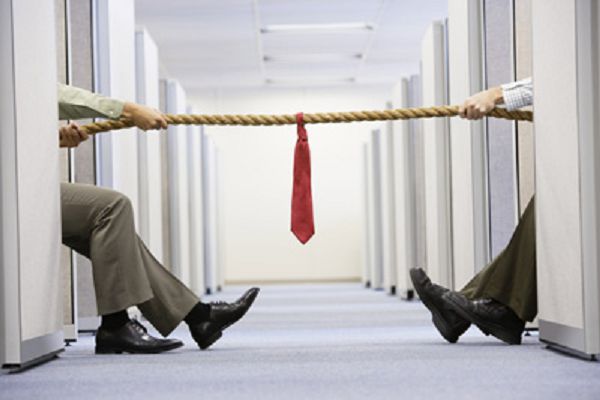
Workplace incivility, disregarded canker in organisations
One would ask, why do organisations have value statements and code of ethics document?
They are simply to guide our behaviour towards clients and each other in the workplace.
Advertisement
Workplace incivility is defined as a low intensity deviant behaviour with ambiguous intent to harm the target, in violation of workplace norms for mutual respect and courtesy.
The low intensity nature and the ambiguous intent to harm distinguishes it from other forms of abuses like assault.
Workplace incivility is a milder, more emerging form of workplace aggression, consequently, not gaining management’s attention as a problem. Giovinella Gonthia, Workplace Civility Expert, noted “the problem with workplace incivility is that people don’t think it’s a problem”.
Forms of workplace incivility
Yelling at someone, intolerable behaviour, damaging someone’s reputation, using a harsh tone, talking in unprofessional language, disrespect for time, absence of common courtesy, lack of restraint, sloppy dress, quick judgement, petty grievances, assuming the worst, gossiping, invading personal privacy, purposely ignoring someone, rudely interrupting a colleague during a meeting.
Supervisors constantly rebuking their subordinates in the presence of other colleagues, ridiculing them, not crediting them and addressing them in bad mood are all forms of workplace incivility.
Sadly, many managers demoralise their subordinates by yelling at them openly, show signs and acts of disrespect yet they don’t take notice of their behaviour and take disciplinary actions against the subordinate when the performance of the victim slips.
We can attest that you and I have been recipients of rude acts in many forms in our workplaces.
Flipping the coin, we cannot count the number of times you and I have been uncivil and the number of people we have caused emotional harm considering the various forms of incivility.
Potential causes of workplace incivility
Incivility often results from thoughtlessness, stress, unconscious bias. Desperation has also been considered as a contributing factor.
Social contextual shifts
Looking outside the workplace suggests that incivility has risen because of indulgent parenting.
Politics and the media have been cited as an explanation for incivility.
We cannot ignore modern society’s cultural leaning toward disrespect and disregard.
Society watches people get away with rude and outrageous demands in public settings so frequently that it seems to be normal.
Organisational pressure
Workplace relationships have become transactional rather than loyalty based and as a result, civility seems like a huge waste of time.
In a globalised, rightsized, outsourced world, businesses are forced to do more with less in order to compete, high customer demands, and workers being stretched to accommodate the stiff competitions have contributed to increasing workplace incivility.
Effects/costs of workplace incivility
Survey conducted by Porath and Pearson in 2013 revealed that victims of workplace uncivil behaviour had the following responses:
12 per cent said that they left their job because of the uncivil treatment.
25 per cent admitted to taking their frustration out on customers.
38 per cent intentionally decreased the quality of their work.
47 per cent intentionally decreased the time spent at work.
48 per cent intentionally decreased their work effort.
63 per cent lost work time avoiding the offender.
66 per cent said that their performance declined.
78 per cent said that their commitment to the organisation declined.
80 per cent lost work time worrying about the incident.
What can organisations do?
• Organisations need to develop and enforce a zero-tolerance policy for incivility.
Outlining and defining uncivil behaviours.
• Leaders must exhibit the behaviour they expect to see in their employees.
• Leaders should take feedback from colleagues and look at their own actions and determine whether they are being civil.
• Educate employees to be culturally aware and competent.
• Address disrespectful behaviour as soon as it is noticed.
• Hire people who show signs of good manners.
• Incorporate civility training into employees’ development curriculum.
• Continually review and talk about organisation’s behaviour statements.
It shows management’s commitment to changing the climate.
Civility takes time and effort. However, how much does it cost one to behave well, treat people with respect, exercise restraints, disagree constructively and extend a hand of help?
Workplace incivility is treacherous and affects organisation’s bottom line.
Organisations disregarding workplace incivility and refusing to address it, end up dealing with its after-effects through turnover, low morale and productivity gaps.
The writer is HR/Training professional.
Training speciality: workplace civility, business etiquette and ushering skills for church ushers.
[email protected]. +233243464568



